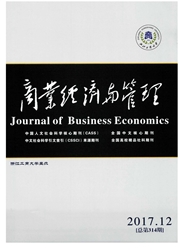

 中文摘要:
中文摘要:
深入了解消费者如何响应不同类型的环境活动是企业有效开展绿色营销的重要前提。文章引入解释水平理论,对制度理论研究中有关象征性环境活动和实质性环境活动的后果进行了充实和拓展。通过一项实验,研究发现,消费者对企业环境活动的反应会受到解释水平倾向的影响。相比低解释水平的消费者,高解释水平的消费者对象征性环境活动的环境合理性感知更高;在评价实质性环境活动时,这一差异并未出现。文章还发现,消费者的环境合理性感知在环境活动与解释水平的交互项和消费者的购买意愿之间起到了中介作用。最后,研究探讨了结论的意义以及企业如何利用这一结论开展绿色营销。
 英文摘要:
英文摘要:
It is imperative to verify how the effects of types of corporate environmental actions would differ for different consumers, since green marketing has been employed by a growing number of firms. This paper built on and extended prior institutional research relevant to the effects of symbolic and substantive environmental actions by examining the construal level as a moderator of the effects of corporate environmental actions. The results of this study show that, symbolic environmental actions could induce higher environmental legitimacy to consumers who construed information at an abstract, high level than those with low construing level. Compared with low level; this difference disappeared when it comes to concrete environmental actions; and the consumer-based environmental legitimacy mediated the effect of the interaction between environmental actions and construal level on consumer purchase intentions. At last, this paper discussed the implication of the results and provided some suggestions for green marketing managers.
 同期刊论文项目
同期刊论文项目
 同项目期刊论文
同项目期刊论文
 期刊信息
期刊信息
